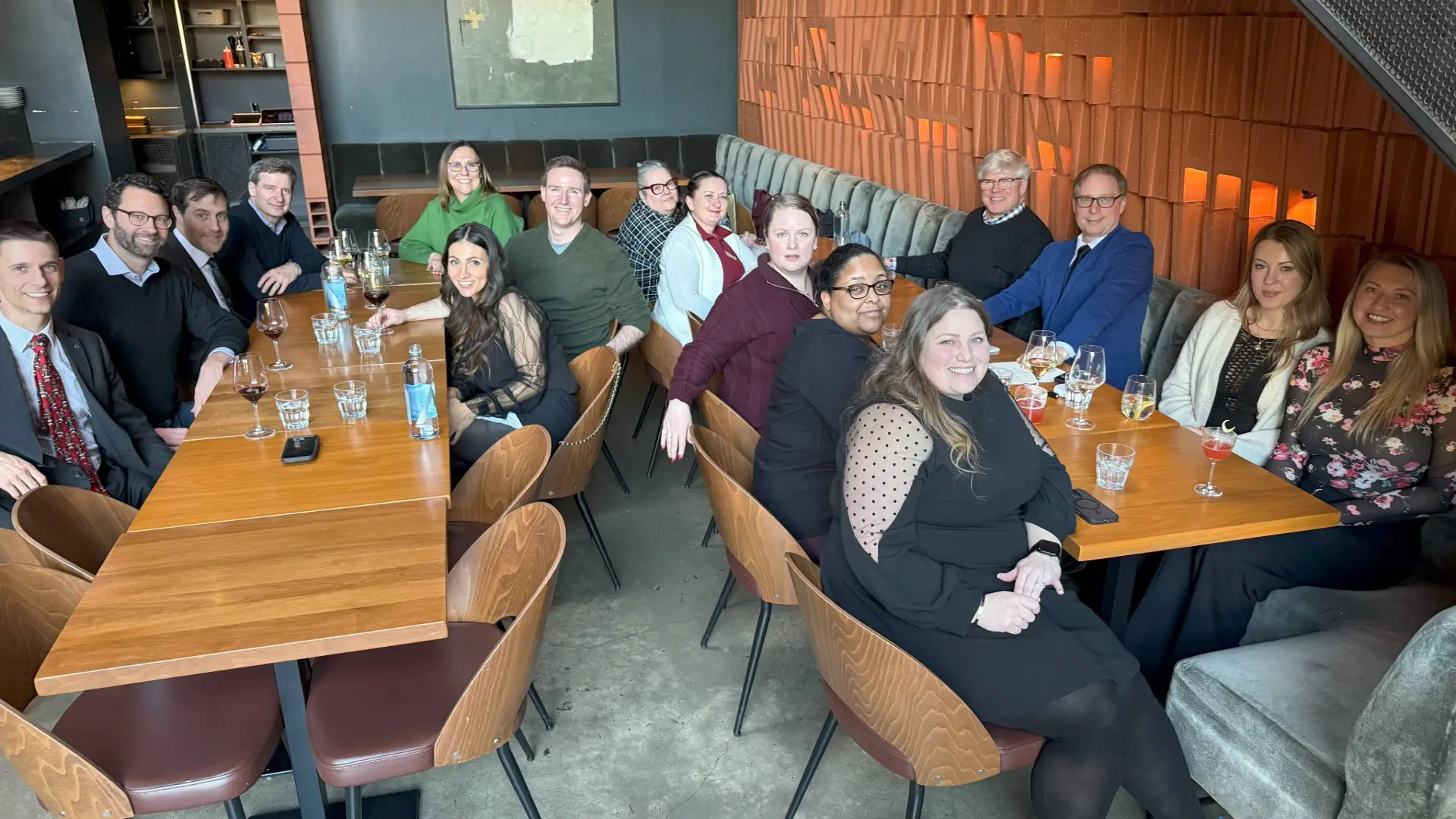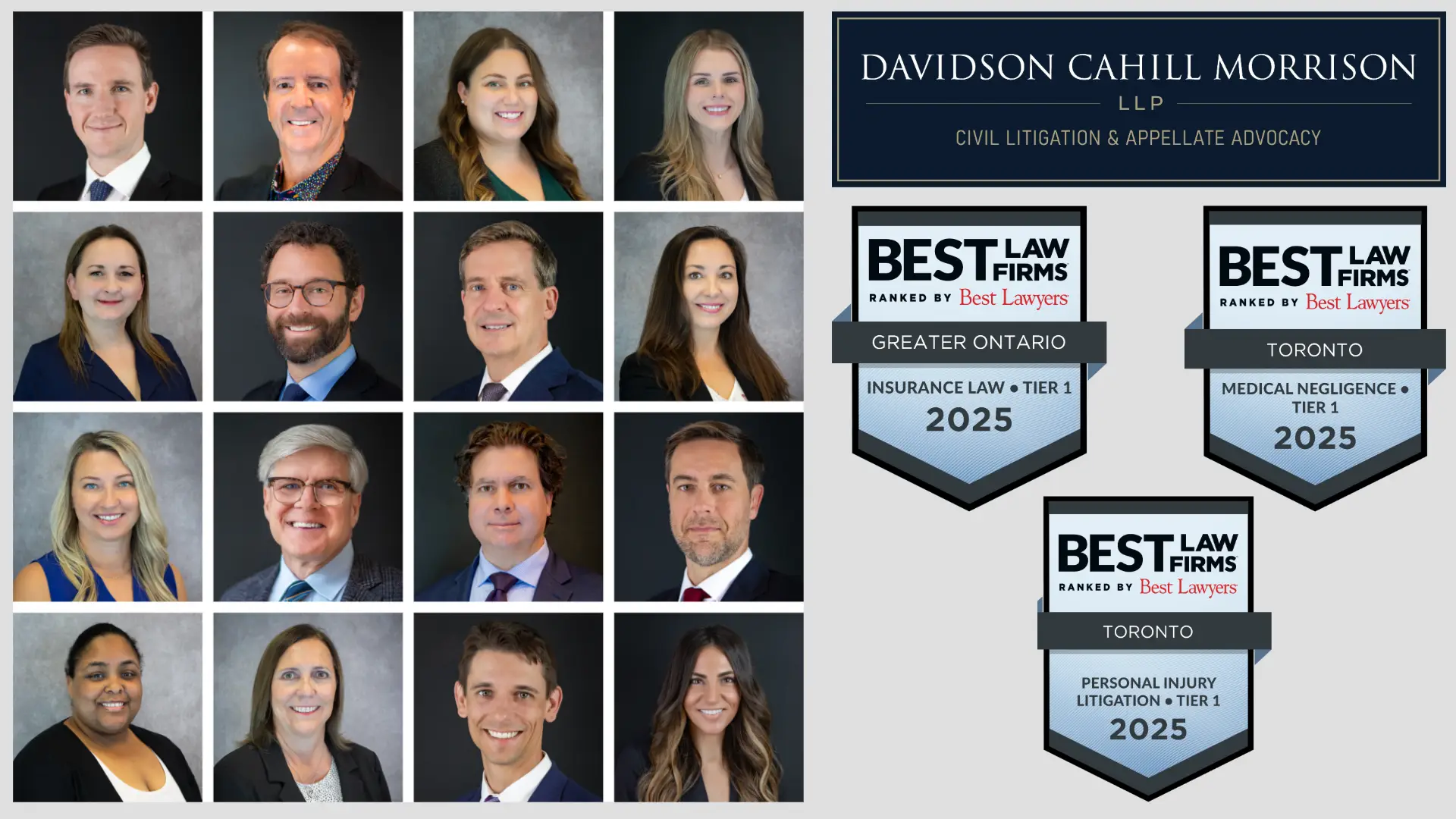
Davidson Cahill Morrison LLP 2024 Holiday Party
On December 12, 2024, the lawyers and staff of Davidson Cahill Morrison LLP celebrated the holiday season together with a family style lunch at Gusto 501.
Offices in Toronto, Huntsville and Bowmanville

On November 22, 2024, the Ontario Licence Appeal Tribunal denied non-earner benefits to a car accident victim who suffered a traumatic brain injury (“TBI”) after falling off an examination table in the course of receiving a pain injection after the accident in the case of Midak v. RSA Insurance Company.
It is not uncommon for a car accident victim to subsequently suffer further harm through medical negligence while being treated for accident related injuries. This decision illustrates the importance of understanding the interplay between medical malpractice and statutory accident benefits.
Non-earner benefits are a type of compensation that may be available to individuals who are injured in a car accident in Ontario and are unable to carry out all their activities of daily living. These benefits are meant to provide financial support for those who did not have a regular income prior to the accident, such as students, stay-at-home parents or retirees.
To be eligible for non-earner benefits, the individual must demonstrate that they were completely unable to carry on with their daily activities and had no employment at the time of the accident. This means that if you were working part-time or self-employed at the time of the accident, you would not qualify for these benefits.
In order to receive non-earner benefits, the injured individual must also meet certain criteria set out by their insurance company.
The LAT accepted that a motor vehicle accident had occurred, however, it was not satisfied that this was the cause of the applicant’s head injury.
The facts of that case were that the applicant had fallen off an examination table in the course of receiving an injection. This happened at a pain clinic several months after the car accident. This incident was the subject of litigation for professional negligence before the Ontario Superior Court of Justice. As a result of falling, the applicant suffered a TBI.
Section 12(1) of the Statutory Accident Benefits Schedule – Effective September 1, 2010 (including amendments effective June 1, 2016 provides that an insurer shall pay a non-earner benefit to an insured person who sustains an impairment as a result of the accident, if the insured person suffers a complete inability to carry on a normal life as a result of and within 104 weeks after the accident.
Section 3(7)(a) defines a “complete inability to carry on a normal life” as “an impairment that continuously prevents the person from engaging in substantially all of the activities in which the person ordinarily engaged before the accident.”
The Court of Appeal set out the guiding principles for non-earner benefit entitlement in Heath v. Economical Mut. Ins. Co., 2009 ONCA 391, which, generally, focuses on a comparison of the applicant’s pre- and post-accident activities.
The LAT accepted that the applicant did demonstrate through her testimony and medical evidence that she did suffer a complete inability to carry on a normal life within 104 weeks after the accident
However, it further found that the most significant component of the inability to lead a normal life was related to her TBI, which the LAT found not to be as a result of the accident because:
For the above reasons, the applicant’s non-earner benefits were denied due to intervening medical malpractice.

On December 12, 2024, the lawyers and staff of Davidson Cahill Morrison LLP celebrated the holiday season together with a family style lunch at Gusto 501.

At first “blush” this Exclusion appears to exclude just about everything. Regrettably we have seen denials from title insurers that reference this Exclusion in a very aggressive way. Title insurers, and the lawyers that sell their policies, suggest to Insureds that they can make claims on their own behalf.

Davidson Cahill Morrison LLP has been recognized in the 2025 edition of Best Law Firms™ – Canada, a testament to its unwavering commitment to legal excellence. Ranked by Best Law Firms in 3 practice areas and regionally in 3 practice areas, Davidson Cahill Morrison LLP has distinguished itself in the legal industry, earning this prestigious accolade.

In recent years, Tesla has become synonymous with innovation and cutting-edge technology in the automotive industry. However, the rise of these advanced vehicles has also been accompanied by a growing concern over car accidents and the alarming instances of cars catching fire.